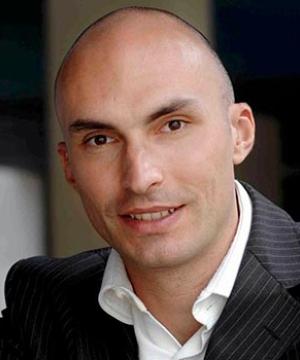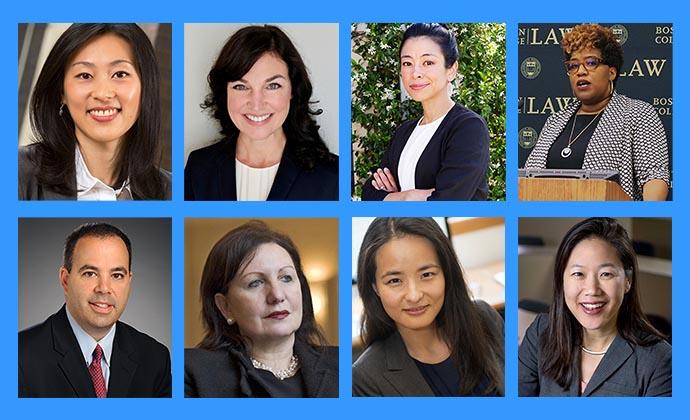Visiting Professors Offer Fresh Viewpoints
First-year Columbia Law students who take a Contracts course with Professor Giuseppe Dari-Mattiacci gain an international and interdisciplinary perspective. “It is useful sometimes to show the students how contracts look like elsewhere or what they were like in the past,” says Dari-Mattiacci, a visiting professor of law and economics from the University of Amsterdam who also has an LL.M. and J.S.D. from Columbia Law School. “This provides them with a more nuanced view of the law of contracts, examples of how different societies approach similar problems, and insights into the reasons and goals behind the law.”
As the Law School's Joseph P. Cunningham Visiting Professor of Commercial and Insurance Law, Dari-Mattiacci is pursuing an ambitious scholarly agenda while at Columbia. In addition to his own research on the theory of business organizations, he is working on projects with Professor Eric Talley on merger objection suits and the effects of the recent Trulia decision; and with Professor Alex Raskolnikov on selective incentives (regulatory schemes that have an effect on whether individuals participate in the regulated activity and whether they comply with the regulation).
“Columbia Law School is a great environment to do research at the intersection of law, economics, finance, business, and history,” says Dari-Mattiacci, who is co-editor of the International Review of Law and Economics and president of the European Association of Law and Economics. “During my time as a Columbia student, I've had the freedom and the support necessary to develop my ideas in a way that would have been impossible on my own or anywhere else. Columbia Law School has a tradition of openness and dialogue with other departments, which is extremely valuable.”
He says teaching at an American law school is invigorating. “It is very interesting to compare the Socratic method with the traditional civilian methods used in European schools,” he says. “To some extent, knowing both methods allows me to supplement the Socratic method with a somewhat more systematic analysis of the law whenever necessary.”
Like several of the visiting scholars, Dari-Mattiacci not only has a law degree. After receiving a juris doctor at the University of Rome, he earned a master’s and Ph.D. in law and economics from Utrecht University as well as a bachelor’s in mathematics from the University of Amsterdam. Other visiting professors for the 2018–2019 academic year also have diverse CVs. Some are teaching foundational subjects like torts and civil procedure while others are introducing specialized courses on topics such as comparative constitutional studies and the role of algorithms in legal decision making.
- Seyla Benhabib, a professor of political science and philosophy at Yale University, is a senior scholar in residence at the Columbia Center for Contemporary Critical Thought (CCCCR). Her most recent book is Exile, Statelessness, and Migration: Playing Chess with History from Hannah Arendt to Isaiah Berlin. In the spring semester, she is teaching Refugee, Migration and Citizenship Law: A Comparative Perspective.
- Colleen Chien, a professor at Santa Clara Law and a fellow at the Stanford Computational Policy Lab, will introduce the course The Technology, Business, Law, and Policy of AI for J-Term and teach Patents in the spring.
- Sarah Seo, an associate professor at the University of Iowa College of Law who has Ph.D. in history from Princeton, is also in residence at CCCCR where she is working on a book, Policing Everyman: How Cars Transformed American Freedom.
- Karen Tani, a legal historian at Berkeley Law, is teaching Torts. She is the first graduate of the University of Pennsylvania’s J.D./Ph.D. program in American legal history and recently published States of Dependency: Welfare, Rights, and American Governance, 1935–1972.
- Crystal Yang, an assistant professor at Harvard Law School and a faculty research fellow at the National Bureau of Economic Research, is teaching two seminars: Algorithms and the Law, and Social Science and the Criminal Justice System. She has an A.M. in statistics and a Ph.D. in economics from Harvard.
The Law School is also hosting three visiting clinical professors: Emily Benfer (Yale Law School), Lynnise Pantin ’03 (Boston College Law School), and Paul Radvany ’92 (Fordham Law School) who are leading new clinics as part of Columbia’s expansion of experiential education programs.
###
Published October 31, 2018

